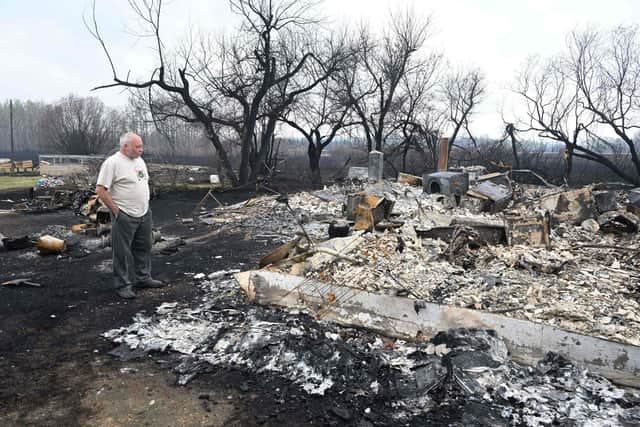Climate change: Warning signs across the world suggest the situation is already out of control – Dr Richard Dixon
The world’s climate scientists recently warned that the predicted impacts of global warming are happening faster and more strongly than previously expected. Tumbling weather records around the world do indeed show climate change accelerating.
It’s not even mid-May but we already have a record heatwave in western Europe and north Africa, with April temperatures in Spain, Portugal, Morocco and Algeria reaching those expected only in July and August. In Alberta in Canada, there are 108 wildfires burning across 122,000 hectares of land. Countries across South East Asia are feeling record heat, including the hottest days ever in Laos, Thailand and Vietnam, all near the mid-40s Celsius.
Advertisement
Hide AdAdvertisement
Hide AdThe amount of sea ice around Antarctica is at a record low – breaking a record only set last year. The long-running drought in eastern Africa continues to affect 20 million people in Kenya, Ethiopia, Somalia, Uganda and South Sudan, with more than 2.2 million displaced in Somalia and Ethiopia. Climate change has made the drought worse and also more likely to occur in the first place.
With 100,000 glaciers expected to disappear this century, a ghoulish new form of disaster tourism has come about, with people trekking to see the last of the permanent snow on high peaks. Last year there was the October heatwave in China, with some temperatures more than 20C higher than normal, and the massive summer floods in Pakistan, estimated to have cost more than $30 billion and affected 33 million people.
And things are going to get worse as the regional warming phenomenon known as El Niño gets going. This periodic warming of the waters of the Pacific affects the weather all over the world and is likely to last for several years. It disrupts global weather patterns, leading to more intense storms in some places and droughts in others. One of its biggest impacts is the failure of monsoon rains, leading to disastrous crop failures. The exceptionally strong El Niño of 1876-8 may have caused famines which killed more than 50 million people in Asia, Africa and South America.
The surface of the sea is already hotter than in the record-breaking ‘Super El Niño’ of 2016. Because of this, 2023 could well turn out to be the warmest year ever, beating, you guessed it, 2016. In Indonesia, there are fears of the return of the killer haze of 2016, which saw 100,000 premature deaths across the country, driven by the extra heat and lack of rain resulting from El Niño.
The picture in Scotland is more moderate, although February was the second warmest February ever recorded and we might be on track to have our sixth warmest year ever. Here in north-west Europe were are cushioned from the biggest temperature rises because the warming waters of the Gulf Stream are weakening. The Irish government has just been warned to expect cooler times because of this. The disruption from El Niño may also mean colder winters for a few years for the UK.


Because one impact of climate change is cancelling out another impact, Scotland is currently among the places least affected anywhere in the world. But the global message as weather records tumble around the world is clear – climate change is out of control, and every country must do more to reduce climate emissions.
Dr Richard Dixon is an environmental campaigner and consultant
Comments
Want to join the conversation? Please or to comment on this article.